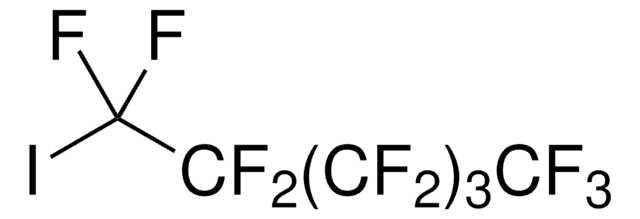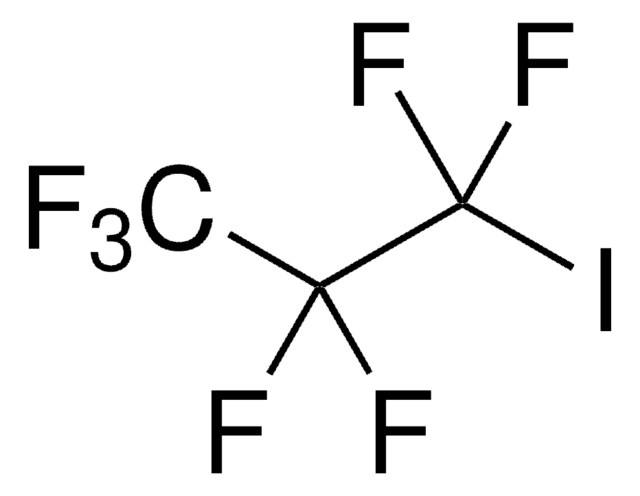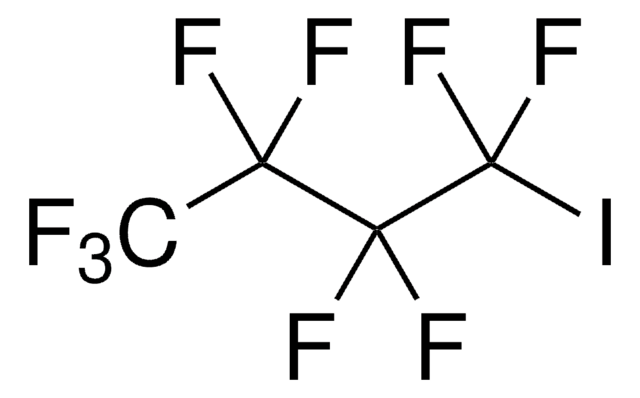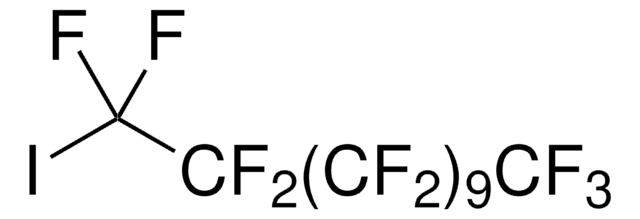262544
Heptadecafluoro-1-iodooctane
98%
Synonym(s):
1-Iodoperfluorooctane, Heptadecafluorooctyl iodide, Perfluorooctyl iodide
About This Item
Recommended Products
Assay
98%
form
liquid
contains
copper pellets as stabilizer
refractive index
n20/D 1.329 (lit.)
bp
160-161 °C (lit.)
density
2.067 g/mL at 20 °C (lit.)
functional group
fluoro
SMILES string
FC(F)(F)C(F)(F)C(F)(F)C(F)(F)C(F)(F)C(F)(F)C(F)(F)C(F)(F)I
InChI
1S/C8F17I/c9-1(10,3(13,14)5(17,18)7(21,22)23)2(11,12)4(15,16)6(19,20)8(24,25)26
InChI key
KWXGJTSJUKTDQU-UHFFFAOYSA-N
Looking for similar products? Visit Product Comparison Guide
Application
Signal Word
Warning
Hazard Statements
Precautionary Statements
Hazard Classifications
Eye Irrit. 2 - Skin Irrit. 2 - STOT SE 3
Target Organs
Respiratory system
Storage Class Code
10 - Combustible liquids
WGK
WGK 1
Flash Point(F)
239.0 °F - closed cup
Flash Point(C)
115 °C - closed cup
Personal Protective Equipment
Choose from one of the most recent versions:
Already Own This Product?
Find documentation for the products that you have recently purchased in the Document Library.
Customers Also Viewed
Our team of scientists has experience in all areas of research including Life Science, Material Science, Chemical Synthesis, Chromatography, Analytical and many others.
Contact Technical Service














